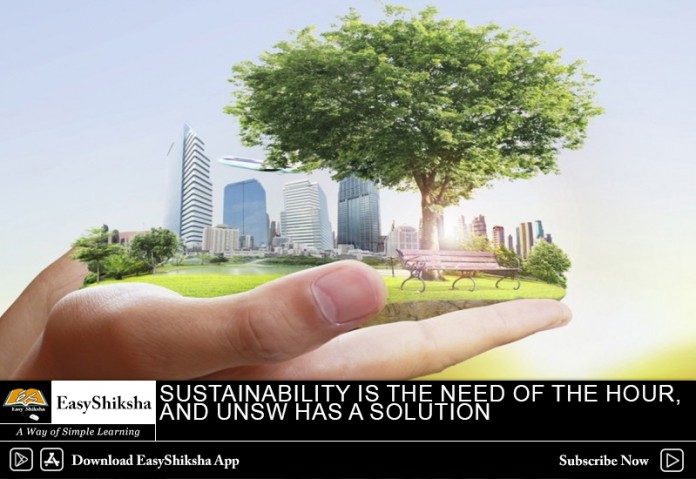With the rate at which consumption of resources and creation of goods and services is constantly increasing, there has developed a need for sustainability. India is the second most populous country in the world and understandably, it has an extremely high rate of consumption. Currently, collaborative efforts by the government, and several industry bodies in the private sector, along with multiple local communities, are attempting to address this critical need. India’s sustainability projects display an effort made by public and private bodies alike to reverse the damage done to the environment. It can largely be divided into five categories – Forest/Biodiversity, Energy, Environment, Waste and Water Management. The projects being carried out include programs such as rainwater harvesting, installation of solar panels, tree plantation and waste recycling, to name a few. Working towards a sustainable life is an important effort. Unfortunately, this is a long road and India’s just at the starting line.

Important Announcement – EasyShiksha has now started Online Internship Program “Ab India Sikhega Ghar Se”

Despite the efforts being put in, India could stand from gaining inspiration from other nations that are making strides in the sustainability space. Australia is one such nation with some commendable projects under its belt. Their efforts towards safe and sustainable mining, like the De Grussa Mine solar power project and the Rio Tinto solar photovoltaic plant are wonderful examples that India can learn from. Projects concerning cleaning of stagnant water and combining solar thermal energy with ground heat exchangers for reduction of gas emissions too can be adapted for the use and benefit of many in India.
It is important to start at the grassroots level and this can be done by ensuringthat new projects being built are well equipped to be sustainable from the start. Thus, people need be well informed about the process and of new developments in this field. Students studying architecture need to be educated on planning and construction from a sustainability point-of-view, so that they can contribute towards a better future for the country. Many foreign universities such as the University of South Wales (UNSW) offer courses on understanding and implementing sustainable alternatives.
The Healthy Built Environment Program (HBEP) is one of the prestigious courses being offered at UNSW for which, funding worth $1.5 million is being provided by the NSW Department of Health. This program’s aim is to develop global leaders in architecture, planning and construction by offering learning from top researchers, academics and leaders in built environment professions. UNSW Built Environment research is about cities, people, places, property, buildings, design, infrastructure, environment, landscapes, institutions, and the complex interactions between them. Many of the graduates from this course are now innovative thinkers, change catalysts and leaders in all facets of the built environment, worldwide.
Top Courses in Software Engineering
This program is based on UNSW’s vision of creating futuristic cities that are well connected and inclusive. They aim to accomplish this by inspiring and challenging the city-makers of tomorrow and offering comprehensive undergraduate, post-graduate and post-professional degree programs to create these cities of the future. These programs are built to be challenging and help, not just nurture the student’s skill set, but also test it; make them come up without-of-the-box solutions.
UNSW also conducts regular knowledge exchange workshops with Indian partners with an aim of building new partnerships between India and Australia and fostering a culture of sharing best practices, in a move towards a holistic vision of Goal 11 (Sustainable Cities and Communities) of the UN’s Sustainable Development Goals. The recently conducted workshop at UNSW saw the release of the ‘Making Indian Cities Energy Smart’ policy brief by Indian research body – The Energy and Resources Institute (TERI) and UNSW for the Indian government and practitioners. According to the UNSW Chair of the Knowledge Exchange series, Dr Komali Yennati, this document will help policy makers and practitioners with information on relevant strategies, actions and initiatives on smart energy management.
Students opting for the HBE program have the chance to help build a better future for their nation, with the help of expert learning that offers insight on creating more through ethical and sustainable practices. Because, sustainability is the need of the hour, and it is our responsibility to shoulder it, the best we can.
Empower your team. Lead the industry
Get a subscription to a library of online courses and digital learning tools for your organization with EasyShiksha
Request NowQ. Are EasyShiksha's internships truly free?
Yes, all internships offered by EasyShiksha are completely free of charge.
Q. How can I apply for an internship with EasyShiksha?
You can apply by visiting our website, browsing available internships, and following the application instructions provided.
Q. What types of internships are available through EasyShiksha?
EasyShiksha offers a wide range of internships across technology, business, marketing, healthcare, and more. Opportunities are continuously updated.
Q. Will I receive a certificate upon completing an internship?
Yes, upon successful completion, you will receive a certificate recognizing your participation and achievements.
Q. Are EasyShiksha's internship certificates recognized by universities and employers?
Yes, the certificates are recognized by universities, colleges, and employers worldwide.
Q. Is the download of certificates free or paid?
Access to internships and courses is free, but there is a small fee to download certificates, covering administrative costs.
Q. When can I start the course?
You can choose any course and start immediately without delay.
Q. What are the course and session timings?
These are fully online courses. You can learn at any time and pace. We recommend following a routine, but it depends on your schedule.
Q. What will happen when my course is over?
After completion, you will have lifetime access to the course for future reference.
Q. Can I download the notes and study material?
Yes, you can access and download course materials and have lifetime access for future reference.
Q. What software/tools would be needed for the course?
All necessary software/tools will be shared during the training as needed.
Q. I’m unable to make a payment. What should I do?
Try using a different card or account. If the problem persists, email us at info@easyshiksha.com.
Q. Do I get the certificate in hard copy?
No, only a soft copy is provided, which can be downloaded and printed if required.
Q. The payment got deducted but shows “failed”. What to do?
Technical errors may cause this. The deducted amount will be returned to your account in 7-10 working days.
Q. Payment was successful but dashboard shows ‘Buy Now’?
Sometimes payment reflection is delayed. If it takes longer than 30 minutes, email info@easyshiksha.com with the payment screenshot.
Q. What is the refund policy?
If you face technical issues, you can request a refund. No refunds are issued once the certificate has been generated.
Q. Can I enroll in a single course?
Yes, select the course of interest, fill in the details, make payment, and start learning. You will also earn a certificate.
Q. My questions are not listed above. I need further help.
Contact us at info@easyshiksha.com for further assistance.
ALSO READ: On-world-child-labor-day-ritesh-rawal-foundation
Get Course: Mobile-Apps-Development-using-React-Native







































































